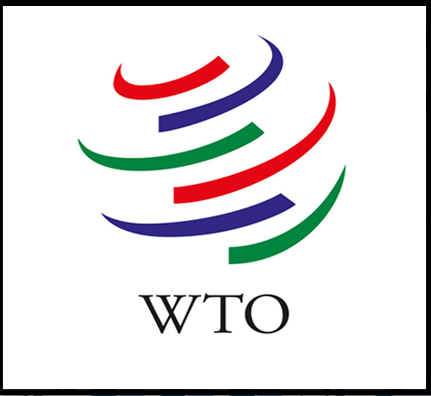WTO’S INVESTMENT FACILITATION NEGOTIATIONS ARE NOT ILLEGAL
Syllabus:
- GS-2 -Institutions and its functioning , International Bodies and their mandate
- GS-4– Ethics in international relations
Why in News :
- The WTO’s 13th Ministerial Conference (MC13) took place from 26 February to 2 March 2024in Abu Dhabi, United Arab Emirates.
Source:- WTO
Introduction to MC13 and the IFD Agreement(investment facilitation for development):
- MC13 held in Abu Dhabi did not adopt the agreement on investment facilitation for development (IFD).
- Negotiations for the IFD agreement were launched in 2017 by 70 countries through the Joint Statement Initiative.
- The IFD agreement aims to facilitate investment flows and was finalized in November 2023.
Support for the IFD Agreement:
- Around 120 out of 166 WTO member countries, representing over 70% of the membership, support the IFD agreement.
- These countries sought to include the IFD Agreement as a plurilateral agreement within Annex 4 of the WTO Agreement.
About WT0:
|
India’s Concerns:
- India played a crucial role in preventing the IFD agreement from becoming a part of the WTO rulebook.
- India’s concerns revolve around the nature of investment in the WTO and the process followed for negotiating the IFD agreement.
Investment vs. Trade:
- India contends that investment is not inherently trade and may or may not result in cross-border trade.
- Contrary to India’s stance, economic literature highlights the close relationship between trade and investment, especially within global value chains.
Process of Negotiating the IFD Agreement:
- India argues that there was no mandate to conduct negotiations on investment within the WTO.
- Referring to past WTO decisions, India asserts that negotiations on new issues, including investment, require consensus among all members.
- Legality of IFD Negotiations: India questions the legality of IFD negotiations, citing a negative mandate against launching negotiations on new issues.
- However, uncertainties arise regarding whether this negative mandate covers all aspects of investment and applies to negotiations on a plurilateral basis.
Importance of Plurilateral Agreements:
- Plurilateral agreements like the IFD agreement are crucial for addressing the WTO’s legislative stalemate and updating trade rules.
- Reinvigorating the WTO’s legislative function through plurilateral agreements is essential, especially amidst challenges in achieving consensus.
India’s Defensive Approach:
- India’s defensive stance towards plurilateral agreements, including the IFD Agreement, may hinder the WTO’s ability to adapt to evolving trade dynamics.
- As India emerges as a major global economy, reconsidering its approach towards plurilateral agreements could contribute to revitalizing the WTO’s role.
Conclusion:
- While India’s concerns about investment in the WTO are valid, embracing plurilateral agreements like the IFD agreement could offer solutions to the organization’s legislative deadlock.
- A reevaluation of India’s defensive stance towards plurilateral agreements may be warranted to ensure the WTO remains effective in governing international trade.
Source:The Hindu
Mains Practice Question :
GS-2
- “Discuss the role and significance of the World Trade Organization (WTO) in the global economy. Evaluate its effectiveness in promoting international trade, resolving disputes, and addressing the concerns of developing countries. Also, analyze the challenges faced by the WTO in the contemporary world order and suggest measures to enhance its relevance and effectiveness.” (250 words)
GS 4:
- You are a policymaker advising a government delegation participating in the World Trade Organization (WTO) Ministerial The delegation is tasked with deliberating on the adoption of the agreement on investment facilitation for development (IFD) during the conference. However, your government has expressed concerns about the legality and implications of the IFD agreement within the WTO framework.
Questions –
Discuss the ethical dilemmas faced by policymakers when navigating issues related to international trade agreements like the IFD within the WTO. Consider the following points in your response:
- Ethical considerations surrounding the negotiation and adoption of plurilateral agreements like the IFD within the WTO.
- Balancing national interests with global trade objectives while ensuring fairness and equity in international trade relations.
- Assessing the legitimacy and legal implications of participating in negotiations and agreements that may lack consensus among WTO members.
Evaluating the potential impact of plurilateral agreements on developing countries’ economic development and sovereignty.




